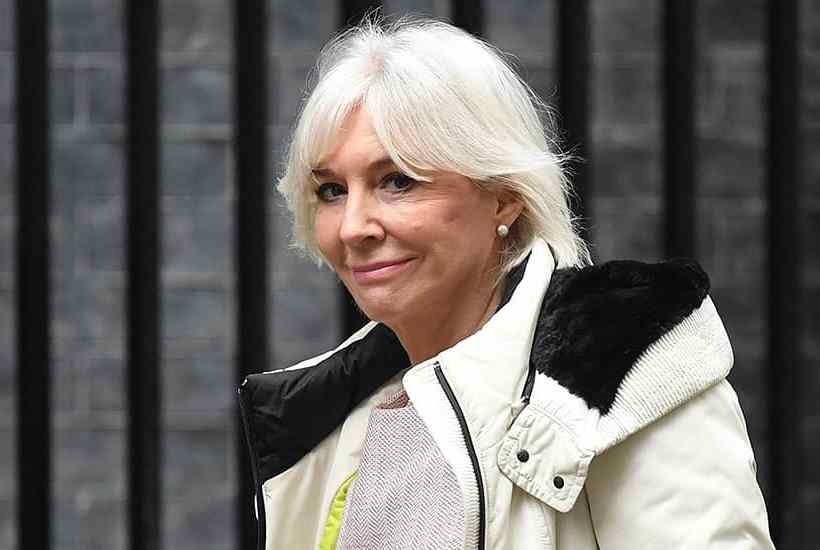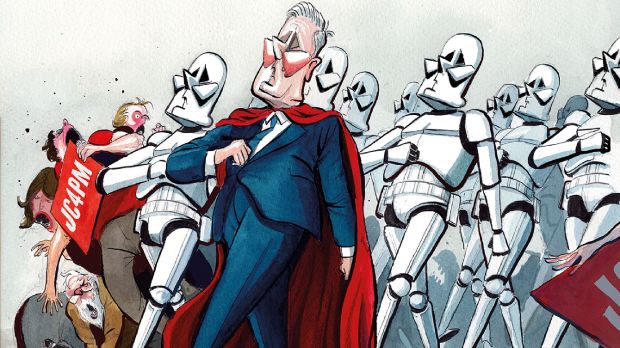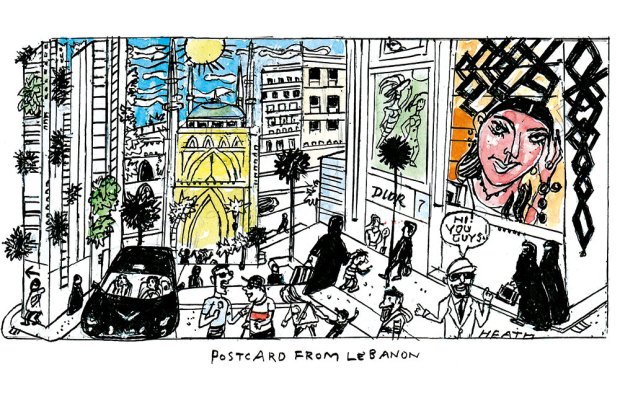My first posting as a BBC foreign correspondent was Belgrade in the mid-1990s. Serbia was led by Slobodan Milosevic, practically the only Communist ruler in eastern Europe not to have been overthrown. He survived by reinventing himself as a nationalist, though he kept the Communists’ secret police. Our secretary was accosted one day by a couple of them, nasty-looking thugs in black leather jackets. ‘State Security,’ said one, pushing her into a doorway. They wanted her to inform on me. If she didn’t, they would see to it that her elderly father stopped getting his pension. She told them to get lost, a brave thing to do.
To Serbian State Security, I had to be a spy, or at least on the UK government payroll. The Serbian information minister asked me, puzzled, how British officials managed to send me the line to take each morning. (Unspoken was the fact that my phone was being tapped.) I replied that if a government official was stupid enough to make such a call, that would itself be a story. He snorted. Wasn’t the BBC chairman appointed by the British government? Didn’t the government decide how much money we got? It was impossible to convince him.
The Culture Secretary, Nadine Dorries, would like to get rid of that peculiarly British arrangement for funding our national broadcaster: the licence fee. Contrary to the Belgrade secret police, she believes ‘You cannot hope to bribe or twist/ thank God! the BBC journalist./ But seeing what they’ll do/ unbribed, there’s no occasion to.’ (With apologies to Humbert Wolfe.) Dorries has the support of many licence-fee payers when she says the BBC must address issues of ‘impartiality and groupthink’. Having once been a member of BBC staff, I know that the instinctive reaction from my former colleagues will be to deny there’s a problem. But, just for a moment, they should consider if she might have a point.
The instinctive denial arises from the fact that most BBC journalists really do believe in impartiality — it’s not just a worthy phrase in the producers’ handbook — and believe, too, that when they come to work, they succeed in leaving their opinions at the door. I started in the World Service, at Bush House, known to the rest of the BBC as ‘Cardigan Towers’. We were even-handed to the point of parody, refusing, for example, to call al Qaeda ‘terrorists’. That was for the good reason that most of the small wars around the world have governments calling rebels ‘terrorists’ and we weren’t about to start choosing sides. Even al Qaeda has a point of view, one we needed to hear. I have interviewed them myself in Syria.
In almost 30 years at the BBC, I never heard someone make an openly party-political remark about a story. Perhaps there were a few political zealots but they were outliers and knew better than to speak in such terms. I remember being lost for words when my editor rang me after Tony Blair’s election victory in 1997 and declared that everyone in the newsroom was ‘walking around with huge grins’. He quickly caught himself, adding ‘about our election coverage, of course’. There was the problem. Every organisation has a culture and the culture of the BBC leaves half the country feeling misunderstood or ignored. It’s why the Corporation got Brexit wrong and failed to predict the Red Wall crumbling. As a former senior manager put it to me, trust in the BBC drops with every mile north of Watford.
The answer, given to the BBC by numerous reviews over the years, is to get a balance of opinion among its staff. In 2005, a former cabinet secretary, Lord Wilson, found ‘cultural and unintentional bias’ caused by a ‘homogeneous professional recruitment base’. The latest review, by the chairman of the Arts Council, Sir Nicholas Serota, said that editors should ‘have a responsibility to seek diversity of opinion and foster open editorial debate’. That much should be obvious, you might think, but Serota was referring to a specific problem: some staff trying to censor stories or people they judged ‘offensive’ on race or transgender issues. Critical race theory — like all ideologies that claim to give a complete explanation of society — is totalitarian in nature. It cannot co-exist with impartiality.
The BBC accepted Serota’s report but is moving sluggishly to implement it. It has yet to begin examining the impartiality of its output as he said it should. (Its bureaucracy is like a great, damp sponge that returns to its original shape, however hard you squeeze it.) The timing of Nadine Dorries’s remarks is, of course, suspect, with the Prime Minister in trouble. She is annoyed at the blanket coverage of partygate. The BBC might have done more this week on other important stories — Russian troops massing on Ukraine’s border, say — but annoying the government of the day is what the BBC is supposed to do. We don’t want a state broadcaster taking orders from a minister of information: political control is the death of journalism. But as for the licence fee, I wonder how long my former bosses can go on defending a system under which someone on benefits can go to jail to pay their salaries.
Some think the whole idea of impartiality is outdated, not just the licence fee. Lord Grade, a former BBC chairman, says we should be able to watch Daily Mail or Daily Mirror TV. But we already have a surplus of opinion. We need facts to understand our complex and confusing world; more objective, impartial reporting. That ought to be the BBC’s mission. If it’s not impartial, there’s very little point to it. The Culture Secretary’s attack may be politically convenient but if she pushes the Corporation into living up to its legal obligation to impartiality, she may save the BBC — from itself.
Got something to add? Join the discussion and comment below.
Get 10 issues for just $10
Subscribe to The Spectator Australia today for the next 10 magazine issues, plus full online access, for just $10.
You might disagree with half of it, but you’ll enjoy reading all of it. Try your first month for free, then just $2 a week for the remainder of your first year.














Comments
Don't miss out
Join the conversation with other Spectator Australia readers. Subscribe to leave a comment.
SUBSCRIBEAlready a subscriber? Log in